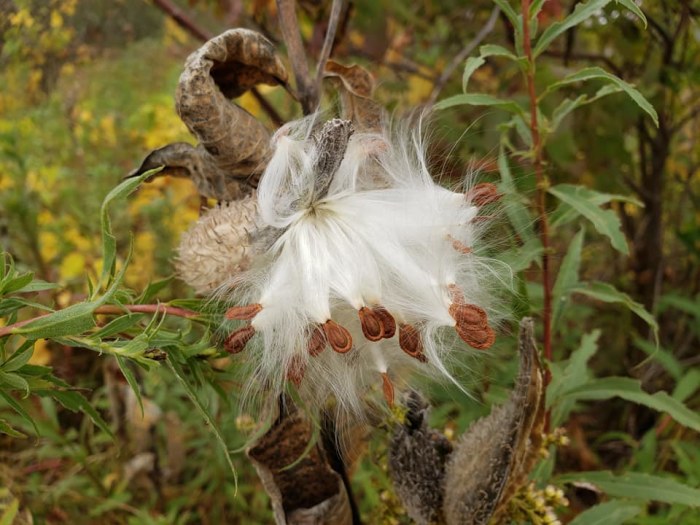“This was my worst year ever for getting out with my camera,” I told a friend in October.
“It’s been the worst year for a lot of things,” she replied.
Most of the wildflower posts I’d planned for this fall never came together. Day after day, I kept finding reasons not to drive to a prairie or go for a bike ride on nearby wooded trails. So instead of closing out this year’s series with my own pictures of late bloomers like asters and goldenrods, I am sharing images of plants that finished flowering months ago. Katie Byerly, also known as the “Iowa Prairie Girl,” gave permission to publish the photographs enclosed below, which she took in Cerro Gordo County in early October.
Iowa wildflower Wednesday will return sometime in the spring of 2021.
Katie has an incredible eye for detail. Dry stamens are visible on this prairie blazing star.
Looking at these seeds, you can see why buttonweed is another common name for velvetleaf.
I’ve never seen feverwort in the wild.
Same goes for dark green bulrush:
One of the mountain mints:
Joe-Pye weed (I think this is “spotted” rather than the sweet variety):
A stunning image of common milkweed seeds from a pod that burst:
Without Katie’s ID, I would not have recognized this plant as swamp milkweed.
Some other goldenrod, with one still flowering in the background:
Tall cinquefoil, a striking sight when blooming on the prairie in July:















3 Comments
Nice photos!
That second-to-the-last photo looks kinda like false boneset (Brickellia), but the perspective makes it hard to tell, and I bow to the expertise of the person who actually saw the plant. And just in case anyone might be confused, “feverwort” is also a name for common boneset (Eupatorium), but this beautiful plant is Triosteum, which loves oak savannas.
PrairieFan Wed 25 Nov 7:26 PM
I didn't realize
those plants shared a common name. Common boneset looks a lot different.
Laura Belin Fri 27 Nov 11:12 PM
I just checked, and in Europe...
…it turns out that Feverwort refers to a plant genus in the gentian family. From what I see, common names weirdly overlap, scientific names suddenly change, the teeth of amateur botanists gently grind:-).
PrairieFan Sat 28 Nov 10:12 PM